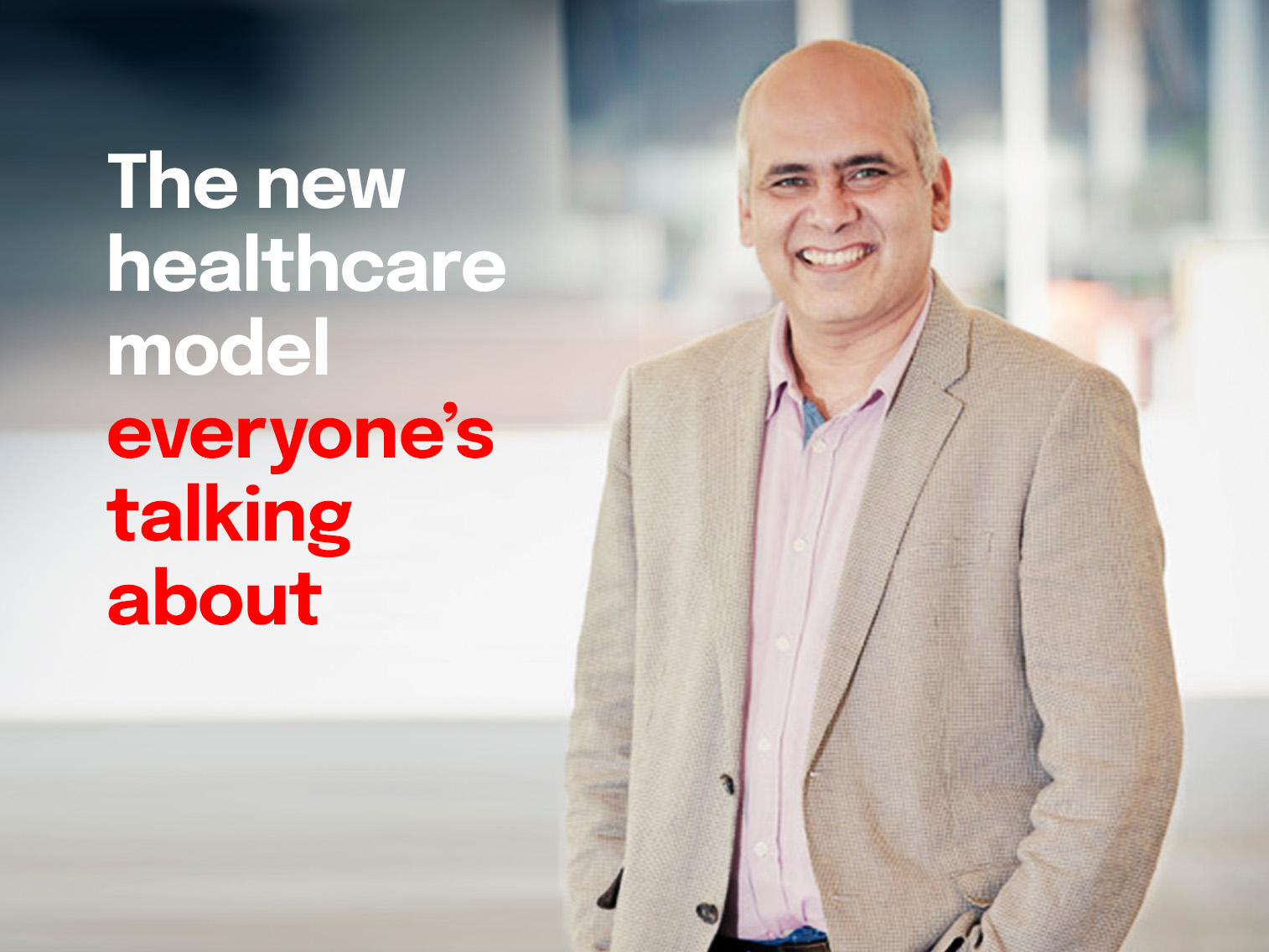NAB Head of Behavioural and Industry Economics Dean Pearson sat down with the PodMD team to discuss our recent 2024/25 NAB Health Special Report (Part 2). PodMD create podcasts for medical professionals.


Podcast
It was always going to be a bold move: launching a privately owned emergency clinic. Dr Pankaj Arora shares why he launched WiSE clinics, how he funds them and what’s behind their 5- to 10-minute window to see a doctor.

After 28 years in emergency medicine, Dr Pankaj Arora determined it was time the ‘ground floor’ experience of visiting a hospital underwent an upgrade.
“The ground floor is where you find the emergency department, radiology, pathology and allied services,” he explains.
“It’s also where people can wait for hours to be seen by a doctor.”
Conscious of the negative impact of long waiting times on doctors as well as patients, Dr Arora saw potential for a business opportunity that could benefit both.
“It’s much more tiring to treat people who are frustrated and unhappy as well as feeling ill or in pain,” he says. “I wanted to create an environment where patients could see a senior doctor within five or 10 minutes of arrival, and doctors could go home feeling more fulfilled and less exhausted.”
Some of his colleagues shared his vision.
The result, initially funded by Dr Arora and his doctor colleagues, is the Walk in Specialist Emergency Clinic (WiSE) in Sydney’s Macquarie Park.
The first private fee-for-service clinic in Australia to offer such comprehensive and coordinated emergency care, WiSE is fully equipped for initial consultation and diagnosis through to treatment. Along with a team of specialists including orthopaedics, cardiology, emergency dentistry, physiotherapy and neurology, onsite services include a fracture clinic, chest pain clinic, respiratory clinic, pathology and a state-of-the-art radiology department fitted with pioneering CT scan technology.
Since opening in 2017, the 150-strong team have treated more than 70,000 patients. Six months ago, Dr Arora opened a second clinic in Robina on the Gold Coast, which is enjoying similar success.
People who visit emergency departments are generally worried for themselves or a family member, so prompt treatment is their first concern.
“In a hospital, you have to go through the triage process and you might be seen by various nurses and junior doctors – you may not see a senior doctor at all,” Dr Arora says. “At WiSE, you’re talking to a senior doctor within five or 10 minutes of your arrival.”
WiSE offers other benefits.
Together with the full range of facilities available under one roof to support the in-house medical team, Dr Arora has access to a network of 200 offsite practitioners in specialist fields.
“If we need input outside our areas of expertise we can arrange a telehealth consultation,” he says. “Our patients don’t have to wait weeks for an appointment with another specialist.”
The clinics also have a different ambience from regular waiting rooms. “We’ve designed them to be very welcoming and comfortable,” Dr Arora says.
It takes a substantial investment to equip a clinic with the resources of a hospital ground floor.
“In the end, seven of my colleagues decided to be part of the project as the primary investors,” Dr Arora says. “Between us, we raised $2 million. I then invited finance providers to hear an investor pitch.”
Andrew Loveridge, Executive of NAB Health and Medfin, says NAB has been partnering with WiSE since then, always focusing on sector-specific support.
“Our specialist experience in the healthcare sector means we know the questions to ask and the points to raise, and that helps us tailor a solution to our customers’ requirements,” he says.
He adds that it’s vital that bankers understand the complexities of the healthcare system as well as customers’ aspirations and business needs.
“We also provide health-specific products and services, like Medfin and HICAPS, which ensures business owners have access to the best medical payment platform and funding options in the market. That’s why our customers think of us as a trusted business partner along with professionals like their accountant and lawyer.”
Investment was less of an issue when Dr Arora decided to open a second clinic.
“We had our relationship with NAB and they had the reassurance of the Sydney clinic’s success,” he says. “The real challenge was finding the right skills and mindset. I see scaling up in terms of people rather than premises or equipment, so I made sure we had the right people on side before we settled on the property.”
With two clinics now under his belt, Dr Arora plans to open more using the same model.
Loveridge, too, looks forward to continuing the relationship.
“Healthcare businesses like WiSE align with NAB’s mission to serve our customers while helping communities,” he says.
“It’s very purposeful to be able to support an industry that’s doing so much to contribute to the health and wellbeing of the nation. It’s exciting work.”
© National Australia Bank Limited. ABN 12 004 044 937 AFSL and Australian Credit Licence 230686.